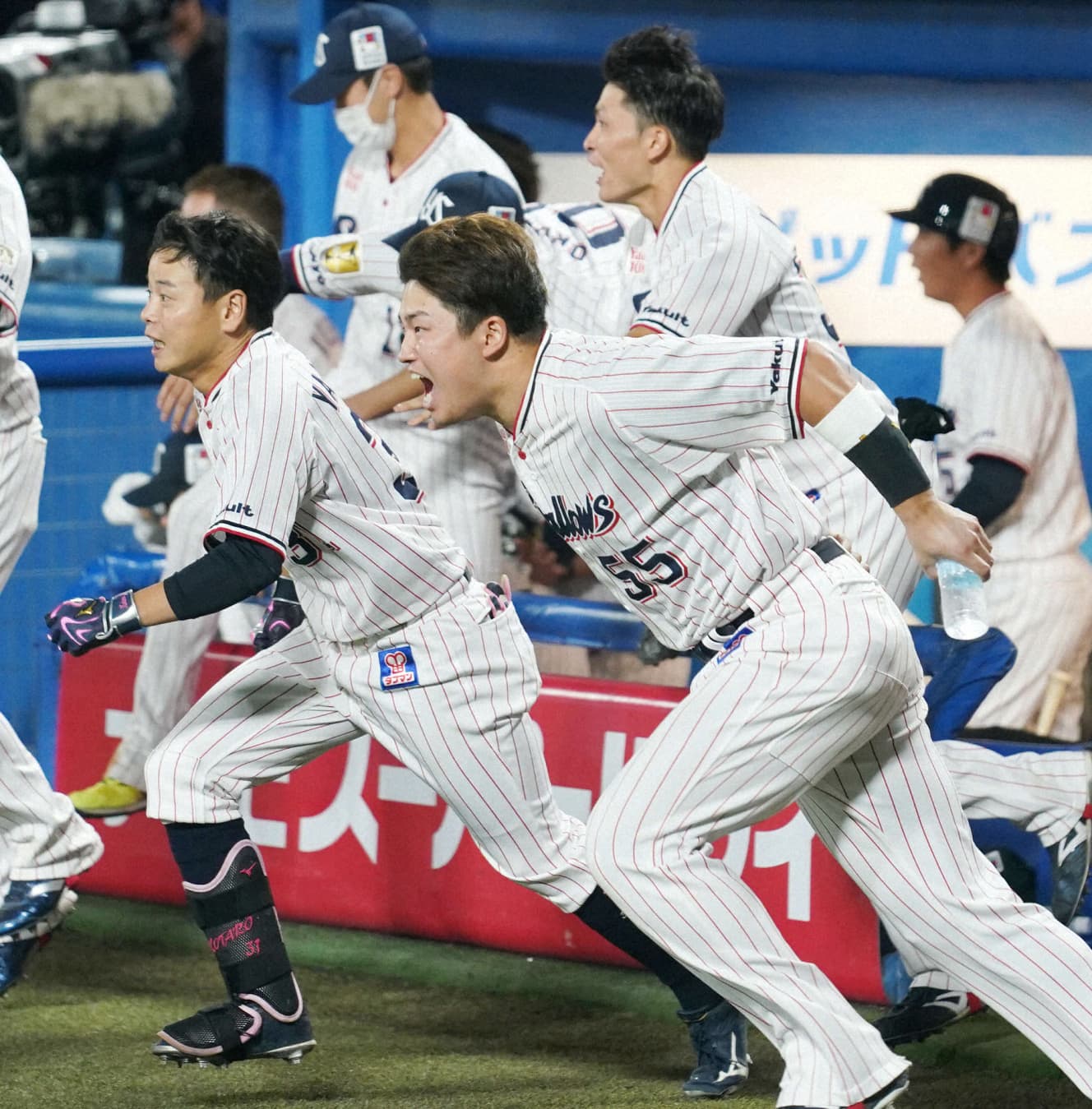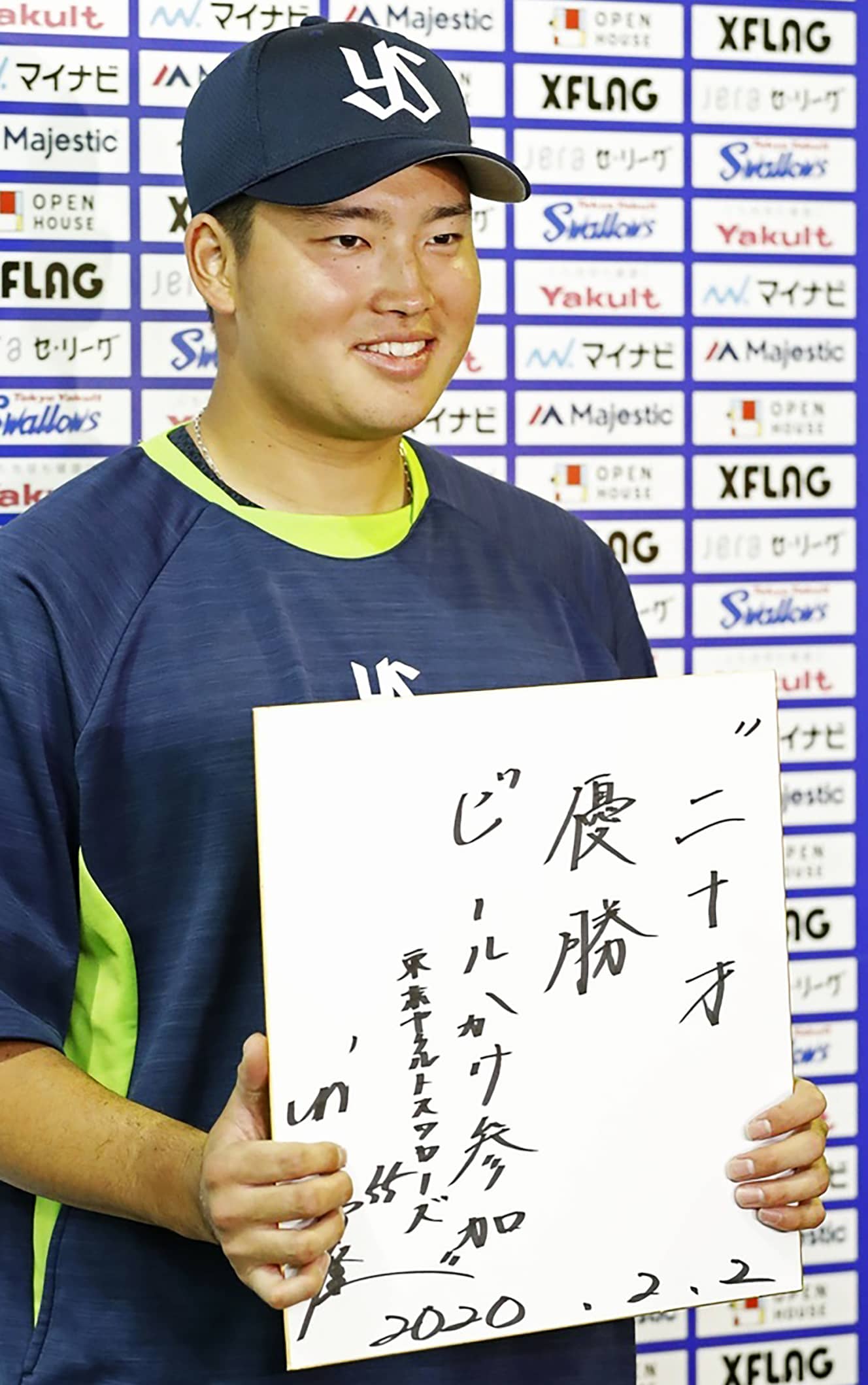Munetaka Murakami: “The Legend of God Murakami” originates from “calligraphy, cleaning toilets, and the Kumamoto earthquake
The Man Who Set a New Record in Japanese Baseball History Contributing to the Tokyo Yakult Swallows' First Consecutive League Championship in 29 Years

Josher!”
Yakult’s main gun, Munetaka Murakami (22), was the first to run out of the bench, shouting the moment the championship was decided. Murakami, who has grown into one of the greatest hitters in Japanese baseball history with the Triple Crown in his sights, was probably the biggest contributor to the Swallows’ 29-year winning streak, which ended on September 25.
Katsumi Hirosawa, the former No. 4 of the Yakult baseball team, has an unforgettable scene. In a game against Hanshin last July, Murakami became suspicious of the actions of second baseman Koji Chikamoto and appealed to the umpire to see if it was sign-stealing. The Hanshin bench was furious, and manager Akihiro Yano yelled, “Of course not! The Hanshin bench was furious, and manager Yohdai Yano yelled at him, “Of course not!
Murakami was just over 20 years old. He glared at Director Yano and walked up to the Hanshin bench as if to intimidate him. The umpires intervened and saved the day, but I was impressed by his determination,” said Hirozawa.
Murakami has been hitting homers in bunches, despite the pressure of the game. He has reached the Japanese record of 55 homers set by the Giants’ Sadaharu Oh in 1964. He continues to rewrite history.
He has no clear weaknesses. Opposing pitchers will have no idea how to attack him.
The origin of the “legend of Murakami” is in his hometown of Kumamoto. The turning point was the Kumamoto earthquake of magnitude 7 that occurred in April 2004. Murakami had just finished his second year of high school when the earthquake struck. His teacher and coach at his alma mater, Kyushu Gakuin, at the time, Hiroyasu Sakai, recalls, “We could not get from the school building to the practice field.
He recalls, “From the school building to the training ground, you pass near Kumamoto Castle. Murakami was shocked to see the familiar castle torn apart by the earthquake. The Kyushu tournament immediately following was held in Nagasaki, and he said, “It’s been a long time since I’ve been in an environment without aftershocks. I remember discussing with him, ‘It must be a blessing to be able to play normally. That was then. Murakami began to speak of ‘gratitude’ for baseball often.”
Murakami was assigned the role of captain in his third year. The first thing he was assigned was a “tradition.
He was first assigned a tradition: “Cleaning the toilets. There are two toilets on the field, and the captain and vice captain clean them after practice. The idea is that the upperclassmen should take the lead in doing chores, and the underclassmen should spend their time practicing and developing their skills. Perhaps it is because the Kumamoto earthquake made them feel grateful to be able to play baseball. Murakami was quietly cleaning toilets without making a sour face,” said Sakai.
Murakami’s mother is a calligraphy teacher, and he won a prize at a calligraphy exhibition when he was in his third year of high school. Even after becoming a professional, he has expressed his feelings and aspirations in writing. His ability to express himself with words is also outstanding. As the aforementioned Mr. Hirozawa said, “When a pitcher is in trouble, he will write down his feelings and aspirations.
When a pitcher is in trouble, whether it is Yasuhiro Ogawa, who is 10 years older than me, or Masaki Ishikawa, who is 20 years older than me, I do not hesitate to call out to him. The same goes for foreign pitchers. He is always trying to make the foreigner feel at ease by saying in broken English, “This is easy. He is not only a skilled baseball player, but also a good communicator.
Murakami still has a lot of room to grow. In his victory interview, he said encouragingly, “I want them to put more pressure on me,” regarding breaking the homerun record.


From the October 14, 2022 issue of FRIDAY
PHOTO: Kyodo News